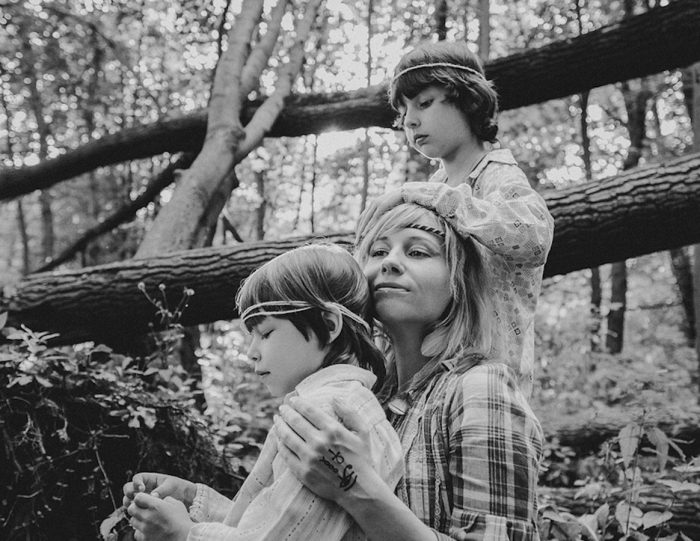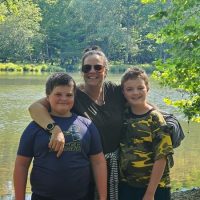Cancelled sports seasons and sleepovers combined with more rigid school rules and less childlike freedom have got my boys feeling pretty down in the dumps.
If you asked them how their week was, they would likely say, “You know, just another week of COVID-19 ruining our lives.”
Actually, my kids know better than to talk that way to their mother, but if looks could talk, I am pretty sure that is what their scowls would say. And what I want to say back is, “It’s no cakewalk for me either, boys.”
But instead, I say, “If we work hard to do the right thing and take care of each other now, everyone will be stronger when it’s over.” And I wholeheartedly believe this to be true.
Principled Parenting
Many level-headed parents I know are making some baffling choices about how to respond to the COVID-19 pandemic.
At any given moment, in any forum or gathering place, too many people are still maskless in Oklahoma. Even as COVID-19 cases in Oklahoma skyrocket and ICU beds fill at alarming rates, the opportunities for my kids to “get involved” are as numerous as ever.
But for now, for our family, the answer is, “No.”
It is a simple enough response, I thought, and one that would be understood if not embraced by other cautious parents. Not so, I’m afraid. The reasons why we should buck scientific wisdom in favor of good old-fashioned fun were numerous and convincing. And they almost won me over.
“Oh, they will be wearing masks.”
“They will be outside most of the time anyway.”
“Kids recover from the virus without many complications.”
OMG people: stop.
Parents and caregivers around the world are in a damned-if-we-do, damned-if-we-don’t situation. It feels like we are in a perpetual Groundhog Day of no-win parenting. Kids are disappointed and parents are exasperated, but I think we are looking at our situation all wrong. Living and parenting during the time of COVID-19 gives us an incredibly rare “teachable moment.” That’s just teacher-speak for a real event that teaches important lessons—far better than any textbook could. The COVID-19 pandemic is that moment for us, and we mustn’t squander it.
What if, instead of using this moment to instill fear and helplessness, we began teaching our children about teamwork, bravery, and loving-kindness? What if we showed out kids that out of great pain comes tremendous growth, wisdom, and humility? What might the world look like then? Interesting question, right?
Teachable Takeaways
I hate COVID-19.
I hate what it has done to our routines, our friendships, and our ability to be there, physically, for one another.
But no amount of hating it is going to make it go away, nor will burying my head in a hole or proceeding with business as usual. There is no choice but to press on and learn all we can from this global crisis. And the lessons that COVID-19 can teach us about being better people are many.
Don’t believe me? Here is a short list of the ways we can use the pandemic to reinforce fundamental values like courage, community, compassion, and global citizenship.
Community.
In our every-man-for-himself existence, COVID-19 gives us a rare chance to consider the concept of community. Our communities are our indispensable webs of support, and they are foundational to our well-being. COVID-19 can help us rekindle our love of community as we see what a valuable role it plays in our lives.
Countless studies have pointed to community support and connectedness as key factors in long-term happiness. And yet, our selfie culture favors radical individuality, competition, and personal achievement over community-mindedness. Focusing on personal goals and ambition is fine in times of plenty but is unhealthy in times of need. “Every man for himself” is no way to right a sinking ship.
COVID-19 gives us the perfect opportunity to discuss the value of teamwork—it really does make the dream work! Kids love getting on board with a team effort and helping their side “win.” And right now, we can harness that spirit of teamwork for the health of the whole community.
Teaching our kids now how their individual efforts will either help or hurt their team is a lesson that will serve them throughout life.
As a family, discuss who your “team” is and how you could help support team efforts. Your “team” can be your immediate family, your school village, or the international community. Whatever you pick as your team, telling kids that the team cannot succeed without them underscores the importance of their contributions. Plus, it gives them the power of personal agency, as they come to believe they have the tools to keep themselves and others safe.
Courage.
I am the worst at saying, “No.” I have literally no personal boundaries, and I would rather please others than myself. But luckily, I also have the courage of my convictions. I believe in doing what is right instead of what is popular, and I expect my kids to live by this philosophy.
COVID-19 gives them, and me, a chance to practice being courageous in our choices. At present, being courageous requires potentially alienating or disappointing people who matter, and sometimes, it means missing out on some seriously awesome stuff. But you know what’s not awesome? COVID-19.
It takes courage to say no to people and things you love. It takes courage to stand up for what you believe, and to go against the grain. It takes courage to break your kids’ hearts to honor your conscience and protect their health. It takes courage for my boys to walk confidently into school each morning, and it takes courage to keep their masks on when others are making different choices. Making healthy choices for themselves during COVID-19, even when those choices aren’t popular, gives them confidence to make good choices later in life. And it gives them the courage to not simply “go along to get along” when asked to do something that betrays their conscience.
Compassion.
“Can compassion be taught?” is a question I contemplated often in 15 years of teaching.
And after exhaustive examination, I believe the answer to that question is “yes.” Not only that, but it isn’t even very hard. The secret to cultivating compassion is simply paying attention! In paying attention to others and their personal worries, hopes, and dreams, we tap into our shared humanity. This is how compassion grows.
Cultivating compassion in children is easy. They come into the world with unblemished hearts that are deeply in tune with the feelings of others. Tragically, over time, we teach this out of our kids in favor of ambition, success, and personal glory. But we will never be happy alone in the gilded cages we build for ourselves, because at our core, we crave connection.
I contend that we never really get comfortable with a self-centered way of life, as we always hold the universal love of our child-like self in our hearts forever. But we have sent our inner children to their rooms permanently “for their own good.” We hide our childhood hope, trust, and dreams away because they were hurt or treated indelicately. And that was painful. But what if we welcomed our inner child back to the table? Might we not be reminded of how much love we used to have for the world and how much we might have again?
And, when you invite your inner child to dinner, you own children will go nuts! They will recognize in you their own desire to love all people, white, brown, purple, or polka-dotted. You will give them permission to feel deeply, which will help them build connected relationships down the road. You will let them know that grief and sadness are okay because your inner child cries often.
Why do we teach our kids that vulnerability is a weakness when it takes tremendous strength to allow our feelings to come?
Kids should have big feelings about COVID-19 and their world, and they need to know it’s okay to share those feelings. It’s okay to ask for help or admit feeling helpless, and it is okay to trust people who extend a helping hand. Having felt the loving arms of kindness from others, our kids will be more eager to pass that love on down the line.
Global Citizenship.
This one is my favorite. Just as kids love teamwork and helping their side “win,” they are also instinctively nonjudgmental about their rainbow-colored world. And COVID-19 allows us to discuss just what our duty is to our multicolored brethren. Duty to others is at the heart of the concept of “citizenship.”
Since my boys were small, we have played a game called, “Oh, the Places You’ll Go.” Using a map, Google Earth, or our awesomely old-fashioned globe, we pick different places to investigate. Sometimes we plan fantastic “someday trips” to exotic lands, and sometimes we discover that we don’t have what it takes to live on the arctic tundra or the African Sahel: “Wow, those people are tough!” And we always talk about how amazing it is that the children, parents, and grandparents in those places all probably like warm, cozy beds and delicious meals as much as we do.
Next, we try to imagine what people’s lives are like in places around the world. We discuss their challenges and comforts, and call on our sense of compassion in doing so. The best question to ask your kids (or yourself) is: should we do anything for others who are suffering? If so, what might we do?
Simple conversations like these teach powerful lessons in citizenship, as we begin to consider concepts like “obligation” and “service to others.” COVID-19 is the perfect tool for helping our kids understand that pain and challenges are part of the universal human experience, but so are hope and healing. Through their thoughts, words, and actions, they can heal hearts and ecosystems, mend rifts, and be fountains of kindness.
Putting Precious Minds at Ease
In the early days of the pandemic, I read a quote on Instagram that is burned onto my brain. It said:
“Children are always learning, and right now they are learning how you respond to a crisis.”
Kids are hanging on our every thought, word, and action to see if they should panic or not. They are desperately searching for tools to understand what’s happening. It is our job as parents, not to promise them that bad things will never happen, but to amply prepare them for when they do.


 Share on bsky
Share on bsky





Read 3 comments and reply